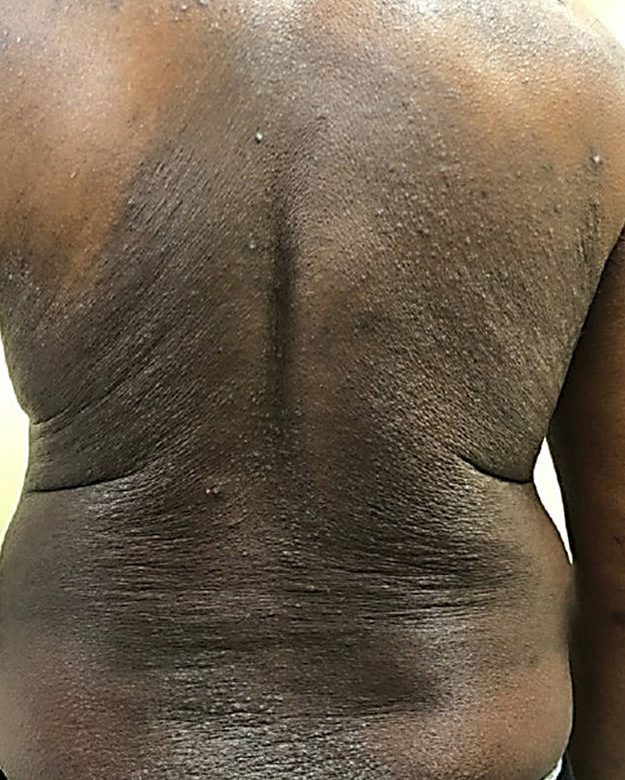ECZEMA NATURAL REMEDIES
ECZEMA NATURAL REMEDIES
Eczema, or atopic dermatitis is a long-term condition that affects the skin. It occurs because of a hypersensitivity reaction which causes the skin to overreact to certain triggers, such as dyes, paint, fabrics, soaps, foods, environment, animals, and other irritants.
Eczema is very common in infants but many people outgrow the hypersensitivity by childhood or early adulthood. Although initial outbreaks of eczema most often occur in infants and young children, onset can occur at any time. Skin may appear red, thick, patched, dry, scaly, inflamed, peeling or may develop a crust, look cracked, blistered, or pus-filled with a recurring rash that causes intense itching. Generally, it’s covered with scaly dead skin. As with psoriasis, eczema can occur anywhere on the body and causes intense itching. Most eczema can be cleared with topical treatment.
Before you consider any kind of treatment, it’s important to understand what triggers your eczema. Learning about the irritants in your everyday surroundings can help you better manage the condition whether you use traditional medications, alternative therapies, or both.
It is important to note that all of the topical remedies in the world may fail to help until you address the underlying problem, specifically: diet and lifestyle factors that may be causing/contributing to the eczema to begin with.
Risk Factors and likely causes for Eczema
•A genetic predisposition or family history of eczema, hay fever or asthma
•Young age
•Low immunity
•Exposures by coming into contact with people that have this problem e.g. school going children and health workers.
•Living in dry climate conditions.
•Nutritional deficiency
•Adolescent obesity, for later onset of eczema cases
•Low vitamin D levels during pregnancy may increase the risk of developing eczema in the first year of life.
•Environmental conditions
•Gene variation that affects skin
•Exposure to Allergens in foods, beauty products, paints, laundry detergents or other chemicals
•Chronic stress
•Temperature changes
DEALING WITH ECZEMA
1.Moisturize
Because dry skin is both a cause and symptom, it is imperative to moisturize affected areas at least twice a day. Black seed oil, castor oil and coconut oil are some of the perfect moisturizers for eczema sufferers. These natural oils are antibacterial and anti-fungal, with antimicrobial properties that provide soothing relief, and may speed healing.
#available at Vintage Herbals
2.Aloevera Gel
Pure aloe gel is rich in anti-inflammatory and healing compounds, and provides a nice cooling sensation to itchy skin. If you have eczema or psoriasis, consider growing your own aloe plant so you can take the gel straight from its natural source. Pure Aloe Vera Gel can also be found at Vintage Herbals outlets.
3.Mind-body approach
Stress is a known trigger for eczema flares. Though the exact relationship between stress and eczema is unknown, experts believe that when you experience a stressful situation, your body produces inflammation. And inflammation is an underlying cause of eczema symptoms.
Eczema and Food
Foods to Eat to Treat Eczema:
•Essential fatty acids -Fish, simsim and flaxseeds can reduce eczema symptoms.
•Pumpkin or chia seeds — these seeds provide zinc, which is essential for wound healing and metabolizing fatty acids.
•Probiotic-rich foods — Consume goat’s milk which has one of the highest probiotic properties and can support gut and immune health thus improving eczema healing.
•High-fiber foods — Constipation can lead your body to look for other ways to expel toxins, and the skin can become one of the avenues in which toxins are expelled. Aim for at least 30 grams of fiber per day from vegetables, fruits, nuts, seeds, coconut and sprouted grains/legumes.
•Vitamin A-rich foods — Increase your intake of orange and yellow colored vegetables, which are high in vitamin A, necessary for skin health.
Foods to Avoid:
•Additives — Eliminate artificial additives and processed foods, which can make eczema worse.
•Foods allergens — avoid any potential allergens from common foods such as gluten (from wheat and its products), milk and dairy products, shellfish or peanuts.
•Margarine and other non-essential fats — these fats can interfere with the absorption of essential fats critical for healing.
•Sugar — Increases inflammation and causes immune dysfunction.
•Fried foods — Can increase inflammation and toxins in the body hence fueling eczema symptoms.
Compiled by
Vintage Herbals
www.vintage-herbals.com
Read More
Categories:
Wellness Tips



